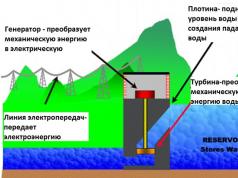The army is perhaps the largest institution that is considered to be regularly functioning. If we add to the contingent currently in service all those liable for military service, including those in the reserves, then more than half of all will be covered. Russian citizens. Naturally, the armed forces will reach such a size only as a last resort, when military aggression from another state is inevitable, but even the existing military personnel, of whom there are hundreds of thousands, must be centrally managed, because a strict hierarchy and a clear sequence of actions in any situation is the quintessence of all army activities .
A set of rules and laws, which has been developed and modified over the years, defines all types of relationships for military personnel, guides their actions, and prescribes responsibilities. We are talking about the military regulations, the first document with which military activity begins. In order to ensure effective learning rules, the charter is divided into structural elements, representing a kind of reference book, which briefly describes the main provisions in the form of separate articles.
Structure of the military regulations
Military regulations, how normative document, is presented in a single text approved by order of the President. It consists of four parts, each of which defines its own sphere of activity for military personnel.
- The Charter of the Guard and Garrison Service of the RF Armed Forces touches on all issues related to the protection of material assets. Here the duties of the person taking guard duty are prescribed, and penalties for various violations are established. The activities of a sentry are always associated with increased vigilance, so this section of the charter is considered the most strict of all.
- The internal service charter is the norm for all personnel. Each civilian employee upon employment receives a set functional responsibilities, the same can be said about the military man. IN single document everything related to the duties of the military is collected, and the rules are defined for all positions and ranks. This charter contains provisions for organizing the maintenance of the barracks, duty, and detachments.
- Relationships between military personnel of different ranks are regulated disciplinary regulations, this is the only document that remains valid even after retirement. Once a civilian puts on the uniform, his behavior must comply with the articles of the charter.
- Drill training, weapons handling techniques and other elements are contained in the drill regulations. For conducting military maneuvers, this document serves as a kind of guidance, because only soldiers with excellent bearing, who have gone through all stages of training, can form mobile effective groups of strategic importance.

Guard service and its charter
The latest version of this charter was published in 2015. In its content, it contains guidelines for the performance of garrison commandant and guard services, and this charter, in addition, normalizes the conduct of all garrison activities provided for in the Armed Forces of the Russian Federation. All are subject to the specified document structural units through the Ministry of Defense, including civilians serving in military positions. Citizens called up for military training are treated as active military personnel.
The document is presented in three parts with appendices. Minimum unit article is considered standard. Each part consists of chapters, which allows you to quickly search for the necessary information. The presented structure turns the legislative document into a handy book for the military man guarding the garrison.
The first part of the UG and KS is devoted specifically to the organization of garrison service. Since the garrison is often represented by several military units, you should clearly know the distribution of responsibilities between regular officials. Army activities are conducted according to the same principles as the activities of a large enterprise. IN in this case the charter can be considered as an analogy of the staffing table and functionality for employees.
The direct implementation of garrison service is carried out by the garrison detachment. One of the chapters of the first part contains articles instructing patrols, duty officers and officials responsibilities. Here, methods of relationships and communication during the transfer of duty are established, a procedure for posting guards and a report form after each shift are introduced.

Any military unit always has equipment on its balance sheet. Unlike civilian vehicles, military equipment is not inspected by the State Traffic Safety Inspectorate. For this purpose, a special military inspection is created. The third chapter specifies the responsibilities of drivers and how to inspect the movement of military convoys, as well as single vehicles. The introduction of military inspection is due to the fact that military personnel often carry out tasks related to the storage of state secrets. Civilians cannot participate in inspections. Although a traffic police officer is not considered a civilian, the intervention of third-party structures without prior approval is unacceptable.
The Charter of the Guard Service of the RF Armed Forces is presented in the second part of the document. The numbering of chapters continues, so questions regarding the basic provisions, responsibilities and purpose of guards form the essence of Chapter 4. The guard service ensures the protection of banners, weapons and strategic objects. At the same time, responsibilities are clearly distributed among all military personnel included in the guard. To ensure the safety of the facility around the clock, it is necessary to regulate not only activities, but also timely divorce and changing of guards. A serviceman has no right to leave his post without permission. Only after the shift can he begin his daily duties.
The guard consists of soldiers vested with various powers. Positions are distributed between them, which may not depend on military rank. When organizing a guard, it is necessary to re-establish relationships according to the staff hierarchy, therefore, such issues should be highlighted in a separate chapter, which is seen in this charter. Checking the guards is aimed at ensuring order and compliance with all provisions provided for by the charter. Only certain persons can carry out inspections, and in a strictly established form. All issues related to inspections are presented in the form of articles 259-264.

List of changing documents
(as amended by Decrees of the President of the Russian Federation dated January 14, 2011 N 38,
dated 04/29/2011 N 561, dated 07/29/2011 N 1039,
dated 14.01.2013 N 20, dated 01.07.2014 N 483,
dated March 25, 2015 N 161)
This Charter defines the purpose, procedure for organizing and performing garrison and guard services, the rights and obligations of garrison officials and military personnel performing these services, and also regulates the conduct of garrison events with the participation of troops.
This Charter governs military personnel of military administration bodies, military units, ships, enterprises, organizations of the Armed Forces of the Russian Federation, including military professional educational organizations, military educational organizations of higher education of the Ministry of Defense of the Russian Federation (hereinafter referred to as military units), and civilian personnel of the Armed Forces Forces of the Russian Federation, filling military positions.
(as amended by Decree of the President of the Russian Federation dated July 1, 2014 N 483)
This Charter applies to military personnel of other troops, military formations, bodies and military units of the federal fire service, as well as citizens called up for military training (hereinafter referred to as military personnel).
GENERAL PROVISIONS
1. Military units located permanently or temporarily on a territory with established borders or in one populated area or in several nearby populated areas constitute a garrison.
Garrisons can be territorial or local.
A territorial garrison is military units, including those included in local garrisons, located, as a rule, on the territory of one subject of the Russian Federation, and in some cases - on the territory of one administrative-territorial unit or on the territories of several of its administrative-territorial units.
Local garrison is military units located in one locality or several nearby ones populated areas and in a limited area around them.
The list of territorial garrisons and their boundaries are approved by the Minister of Defense of the Russian Federation on the proposal of the commander of the military district.
The list of local garrisons and their boundaries are approved by the commander of the military district. The boundaries of the local garrison should be well known to all garrison personnel.
2. Garrison and guard services are organized in each garrison.
The garrison service aims to ensure the coordination of the actions of garrison troops during the transfer from peacetime to wartime, the necessary conditions for their daily activities and training, as well as the conduct of garrison activities with the participation of troops.
Paragraphs three to four are no longer valid as of March 25, 2015. - Decree of the President of the Russian Federation dated March 25, 2015 N 161.
The guard service is intended for the reliable protection and defense of military banners, storage facilities (warehouses, parks) with weapons, military equipment, other military property, facilities of the Armed Forces of the Russian Federation (hereinafter referred to as the Armed Forces) and other military and government facilities, as well as for the protection of military personnel held in the guardhouse and in the disciplinary military unit.
(as amended by Decree of the President of the Russian Federation dated March 25, 2015 N 161)
Garrison service officials are garrison officials.
(as amended by Decree of the President of the Russian Federation dated March 25, 2015 N 161)
(clause 2 as amended by Decree of the President of the Russian Federation dated July 29, 2011 N 1039)
3. The leadership of garrison and guard services, with the exception of the protection of facilities of the Armed Forces, military personnel held in guardhouses and in disciplinary military units protected by military police, within the military district is carried out by the commander of the military district, and the garrison service and garrison guard service within the boundaries of the territorial (local) garrison - the head of the corresponding garrison.
(as amended by Decree of the President of the Russian Federation dated March 25, 2015 N 161)
The leadership of the internal guard service of military units of the garrison is carried out by the commanders of these military units and their direct superiors in the manner determined by part two of this Charter, while the head of the garrison does not regulate the performance of service by the internal guards of the military units of the garrison, except for the cases provided for in Article 20 of this Charter.
Orders of the commander of the military district, the head of the territorial (local) garrison on the organization and performance of garrison service and garrison guard service are mandatory for execution by all military units, commands, as well as individual military personnel of the Armed Forces, other troops, military formations and bodies, citizens called up for military training located within the boundaries of a given military district (garrison), taking into account the provisions of Article 20 of this Charter.
(as amended by Decree of the President of the Russian Federation dated March 25, 2015 N 161)
Commanders of troops of military districts, chiefs of garrisons and all direct superiors are obliged to systematically check the state of garrison and guard services in subordinate troops (in the garrison) and interact with the chiefs of military police on issues of ensuring law and order and strengthening military discipline in garrisons and military units.
(as amended by Decree of the President of the Russian Federation dated March 25, 2015 N 161)
(clause 3 as amended by Decree of the President of the Russian Federation dated July 29, 2011 N 1039)
4. The leadership of garrison and guard services in garrisons in which military units of the Navy predominate is carried out by the commander of the fleet (flotilla). The list of such garrisons is approved by the Minister of Defense of the Russian Federation.
The provisions of this Charter concerning the rights and responsibilities of the commander of the military district troops in organizing and directing garrison and guard services apply equally to the commander of the fleet (flotilla) and the commander of the front forces (individual army).
5. When military units of the Armed Forces, other troops, military formations and bodies are deployed on the territory of a foreign state, the boundaries of garrisons and the specifics of the organization of garrison and guard services are established by an international treaty between the Russian Federation and the state on whose territory the military units are deployed.
(as amended by Decrees of the President of the Russian Federation dated July 29, 2011 N 1039, dated March 25, 2015 N 161)
6. When troops are deployed in the field (in camps), measures to maintain military discipline, protect the facilities of military units and general camp facilities are carried out in accordance with the Charter of the internal service of the Armed Forces of the Russian Federation, the Charter of the military police of the Armed Forces of the Russian Federation and this Charter.
(as amended by Decree of the President of the Russian Federation dated March 25, 2015 N 161)
7. The direct implementation of the tasks of the garrison service is carried out, as a rule, by units of the military units of the garrison.
Military units that are part of the garrison may be involved in the performance of garrison and guard services, as well as in the performance of tasks assigned to military police bodies, with the exception of military units, the list of which, agreed with the control bodies of other troops, military formations and bodies, is determined commander of the military district troops.
The order in which military units perform garrison and guard services in a garrison is established by the head of the garrison.
The involvement of military units in the performance of tasks assigned to military police bodies is carried out in cases and in the manner established by Articles 43 and 195 of the Charter of the Military Police of the Armed Forces of the Russian Federation.
The priority of involving military units in performing the tasks specified in Article 43 of the Military Police Charter of the Armed Forces of the Russian Federation is carried out by the head of the relevant military police body, depending on the composition and purpose of these military units.
Military professional educational organizations and military educational organizations of higher education of the Ministry of Defense of the Russian Federation are involved in performing garrison and guard services, performing the tasks specified in Article 43 of the Charter of the Military Police of the Armed Forces of the Russian Federation, in the garrison within the time provided for this purpose by the curriculum.
The heads of garrisons and the heads of territorial military police bodies interact with each other on issues of organizing garrison service and performing tasks assigned to the military police bodies. The procedure for interaction is determined by the Ministry of Defense of the Russian Federation.
(clause 7 as amended by Decree of the President of the Russian Federation dated March 25, 2015 N 161)
8. Female military personnel are not involved in guard duty.
(clause 8 as amended by Decree of the President of the Russian Federation dated March 25, 2015 N 161)
9. Each military personnel is obliged to provide assistance to persons performing garrison or guard duty.
A serviceman who notices a violation of the rules of service by anyone from the garrison service squad or guards is obliged to immediately inform the garrison duty officer (military unit duty officer, military police body) and report it to his immediate superior.








